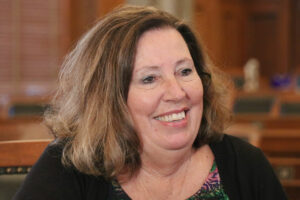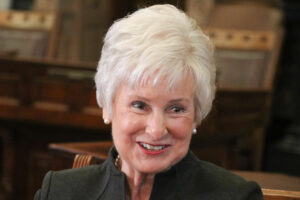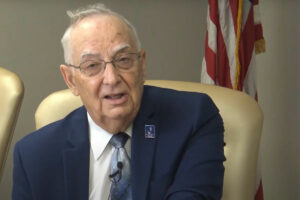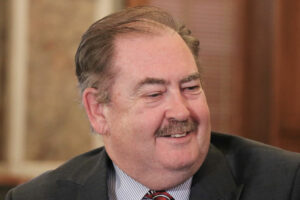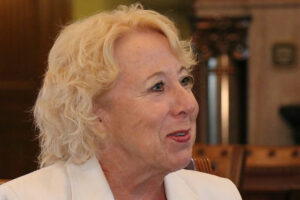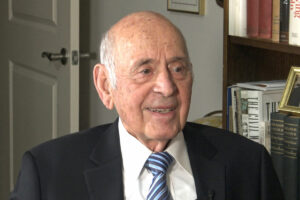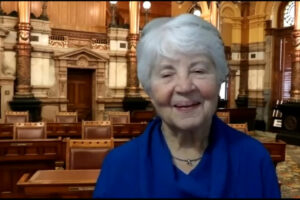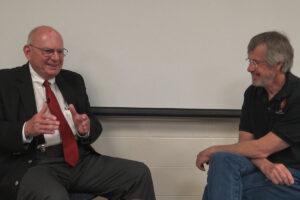Interview of William (Bill) Reardon, August 2, 2019
Interviewed by Jim McLean
Bill Reardon is a story-teller, famous in the Democrat caucus for his jokes, stories and anecdotes, told with great enthusiasm. This entertaining interview is filled with some of those stories. Reardon talks about how he was inspired by seeing John F. Kennedy in Kansas City and also by his brother and father, both political figures in Wyandotte County. Reardon divides his legislative service into two periods—the bipartisan problem-solving work of the first 15 years, and a more ideologically driven, partisan era in the last 15 years. His descriptions of developing and passing the 1992 school finance bill are consistent Show Morewith other interviews of legislators serving at that time. Reardon tells stories about how leadership worked and discloses his observations about the Brownback years when he was serving as a lobbyist for the school district. Show Less


